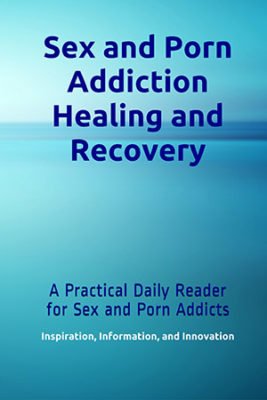 Scott Brassart
Scott Brassart
A few days ago, I received an email from two members of Seeking Integrity’s online workgroup for recovering male porn addicts. In their email, they asked about social media outlets like Snapchat and Instagram and “ethical porn” sites like OnlyFans. Each of them had explored these platforms to one degree or another as part of his addiction, finding them problematic—even though these platforms (allegedly) do not provide access to traditional pornography.
- Snapchat: Snapchat is an instant messaging app on which pictures and messages are available for only a short time before they become inaccessible. That said, Snapchat allows users to keep photos in a password-protected space so that only they or certain followers can access them.
- Instagram: Instagram is a media sharing service. It allows users to upload and share photos and videos either publicly or to pre-approved followers. Users can post imagery, “like” the imagery posted by others, follow other users, have followers of their own, and add other users’ content to their personal feed.
- OnlyFans: OnlyFans is an internet content subscription service. Content creators (of which there are more than 2 million) are paid by users (fans) who subscribe to their content. Content creators can receive money on a monthly subscription basis, through one-time tips, and through a pay-per-view feature.
All three of these platforms promote themselves as providers of something other than pornography, yet they are known for offering easy access to highly sexualized content. And a significant percentage of users visit these digital venues specifically for that purpose. In other words, these platforms do offer pornography, even if they call it something else, and that is their primary draw. Admittedly, they do all offer some content that is not sexual in nature, but they would likely not survive without the sex.
Snapchat and Instagram pass themselves off as social media, a la Facebook, Twitter, and YouTube. In fact, Instagram is owned by Facebook. (Of course, it’s not like you can’t find nudity on Facebook, Twitter, and YouTube!) OnlyFans passes itself off as something called “ethical erotica” or “ethical pornography.”
The thinking behind ethical porn is that the performers are not coerced or manipulated into sex work, are treated fairly from a financial standpoint, and do not engage in or simulate violent or degrading sex. In other words, they enjoy what they’re doing, they are being well paid for their efforts, and they are fully informed adults who have decided to do what they do because it’s what they want to do.
If you believe that any of that matches reality on a consistent basis, there’s a bridge in Brooklyn that I’d like to sell you. Seriously, just send me your bank account info and the bridge is yours.
Here is the truth. Pornography is pornography. Getting paid to be a sex worker is getting paid to be a sex worker. Watching porn is watching porn. Paying to watch porn is paying to watch porn. We can dress these things up however we’d like—calling them social media or ethical or whatever—but at the end of the day, Instagram, Snapchat, and OnlyFans are not much different from PornHub. Except PornHub is up-front about who they are and what they provide.
And no, I am not in any way judging the right or wrong of pornography. Some people choose to post sexualized pictures of themselves or to perform in pornography, and other people choose to view that imagery. So be it. I truly have no strong thoughts on the morality or ethics of that process—unless platforms are providing porn but calling it something else.
With that, I have a problem. And so do the two recovering porn addicts who reached out to me. In fact, they wrote, “We find these terms frustrating because we see little that is either social or ethical about these platforms.” They also wrote, “We have found these platforms way more addictive [when compared to more traditional forms of porn] because they give a false sense of intimacy because of the ability to chat.”
Exacerbating matters for porn addicts is the fact that terms like “social media” and words like “ethical” can be used by addicts and others to justify continued porn use. The pair who wrote to me said they both had done exactly that, even when they knew that their compulsive use of pornography was creating significant problems in their relationships and larger life.
Previously, I have written about what I refer to as “not porn” (props to therapist Tim Stein for creating and introducing me to that term). “Not porn” is imagery of people who are not nude or actively engaged in sexual activity that is used the same way an addict uses porn. A porn addict, for example, can use “not porn” to escape into a la-la land of sexual fantasy—a “bubble” in which stress, boredom, shame, fear, and other forms of emotional discomfort disappear—just as he or she previously used actual pornography.
To me, many of the photos and videos found via Snapchat, Instagram, OnlyFans, and similar venues qualify as a form of “not porn,” primarily because the sites refer to this imagery as something other than porn, thereby allowing users to fool themselves into thinking they’re not actually looking at porn. For porn addicts, this is a nightmare. If you’re addicted to porn and someone is feeding your denial with terms like “social media” and “ethical,” your risk of relapse and continued negative consequences increases significantly.
* * * * * * * * * *
If you or someone you care about is struggling with sex, porn, or substance/sex addiction, help is available. Seeking Integrity offers inpatient treatment for sex, porn, and substance/sex addicts, as well as low-cost online workgroups. At the same time, SexandRelationshipHealing.com offers a variety of free webinars and drop-in discussion groups, podcasts, and more.

